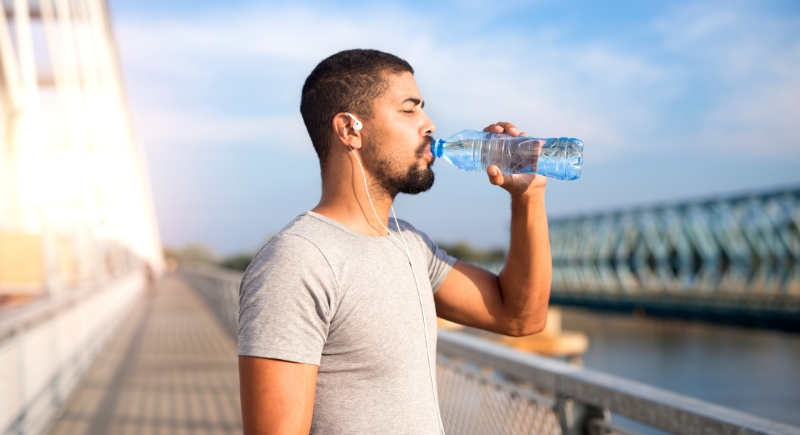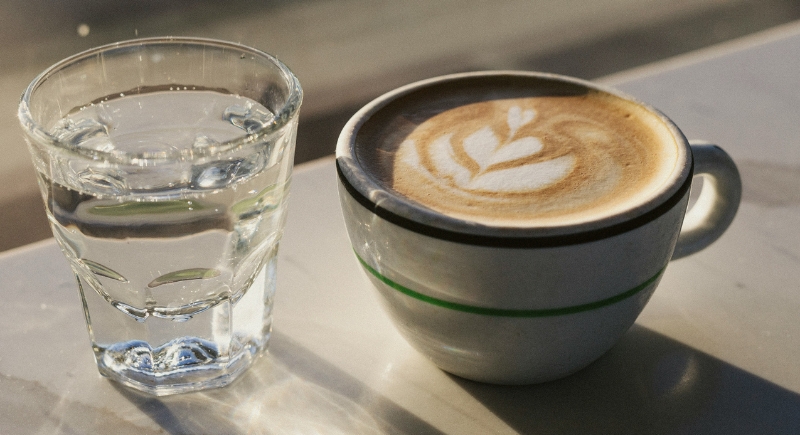Truth About Daily Water Needs (It’s Not 8 Glasses)
If someone randomly asks you how much water you should drink a day, eight might be the figure that comes to mind. The idea that everyone needs eight glasses of water a day has been around for decades. It sounds easy to remember and just scientific enough to pass as solid advice. But it turns out that this popular guideline isn’t based on any concrete science. It’s more like a health myth that picked up traction over time and never quite solved its identity crisis.
Meanwhile, hydration habits have changed, water bottles have gotten fancier, and the internet is still full of people chugging gallons in the name of wellness. The truth is, your body isn’t a machine running on fixed numbers. It’s dynamic and adjusts its needs depending on your size, activity level, food intake, and the weather. The eight-glass rule doesn’t account for any of that. Here’s why, and what actually matters.
Why the 8×8 Rule Exists
Some trace the origin of the rule to a 1945 recommendation by the U.S. Food and Nutrition Board. They suggested adults should consume about 2.5 liters of water per day. But that included all beverages and food. Somehow, that last part got lost. Over time, the idea morphed into a glass-counting game that left out the important context: water isn’t the only way to hydrate.
Plenty of foods have high water content, including watermelon, celery, cucumbers, oranges, and strawberries. Soup, yogurt, and even cooked grains also contain a surprising amount of water. So, when people tell you to drink eight glasses, they’re skipping the part where meals do a lot of the work.
Your Body Knows When It’s Thirsty

Image via FreePik/aleksandarlittlewolf
You don’t need to outsmart your body. Thirst is a built-in sensor that kicks in when your fluid levels dip slightly. For healthy adults, this system works well. Research shows that the body can maintain hydration within 1–2% of its ideal level using thirst alone. That’s a pretty precise internal feedback loop.
Now, things do shift a bit with age. As people get older, the thirst mechanism doesn’t work as sharply. Kids can also be forgetful about drinking water. That’s why older adults and young children sometimes benefit from more regular fluid reminders. But for most adults, drinking when thirsty and eating a balanced diet covers the bases.
How Much Water You Really Need
According to the National Academies of Sciences, Engineering, and Medicine, the average recommended water intake is about 125 ounces a day for men and 91 ounces for women. But these numbers include all fluids—coffee, juice, milk, soda, and water from food. If you’re the type who drinks tea all day, eats a lot of fruits, or has soup with lunch, you’re likely getting more hydration than you think.
The actual amount you need also depends on several factors. Active people who sweat a lot need more. So do people who live in hot, humid climates. If you’re pregnant or breastfeeding, fluid needs also go up. But a blanket rule doesn’t apply well here. Your best indicator is still how you feel. Are you thirsty? Is your urine light in color? That’s your guide.
Water Isn’t a Cure-All
A lot of water advice is tied to promises like better skin, fewer headaches, more energy, and glowing eyes. But those claims are often exaggerated. There’s no evidence that drinking extra water clears up skin unless you’re actually dehydrated. If you already get enough fluids, adding more doesn’t do much. Your kidneys will just get rid of the excess.
The detox myth is another one that refuses to go away. Drinking water doesn’t magically flush out toxins. That’s your kidneys’ job, and they’re already excellent at it. Overhydrating doesn’t improve the process; it just makes you go to the bathroom more often.
Overhydration Is a Real Thing
Too much of anything isn’t great, and water is no exception. Overhydration, while rare, can be dangerous. It leads to a condition called hyponatremia, where sodium levels in the blood drop too low. This can cause cells to swell, which becomes especially risky in the brain.
The body tries to protect itself from this. It signals your kidneys to get rid of excess fluid. But if you keep drinking beyond what your body needs, especially in a short time, you override that system. It’s more common in endurance athletes who overcompensate for fluid loss without replacing electrolytes, but it can happen to anyone who treats hydration like a competition.
Not All Drinks Work Against You

Image via Unsplash/Parker Coffman
There’s a lot of confusion around drinks like coffee, tea, and beer. People often think these “don’t count” because they make you pee more. But moderate amounts of caffeine don’t dehydrate you. Studies have shown that a cup of coffee or tea provides about the same hydration as a glass of water. Beer does too, though it’s not exactly a go-to health drink.
Milk actually performs better than water in some hydration studies, thanks to its electrolyte and nutrient content. The point isn’t to swap your water for beer and lattes, but to understand that hydration doesn’t only come from a bottle or tap.
Practical Hydration Tips That Make Sense
You don’t need apps, gadgets, or gallon jugs to stay hydrated. Start by listening to your body. If you’re thirsty, drink something. If your pee is dark yellow, you might need more fluids. If it’s pale or clear, you’re probably fine. And if you’re getting up six or seven times a day to go to the bathroom, your kidneys are doing what they should.
Try sipping throughout the day instead of forcing huge amounts at once. If plain water bores you, add a wedge of lemon or a few cucumber slices. Smaller bottles are often less intimidating than oversized ones. Breaking your hydration into chunks—morning, afternoon, evening—can help keep things steady without turning it into a checklist.
The Bottom Line on 8 Glasses
Hydration is about meeting your body’s needs based on your day, your environment, and your habits. The eight-glass rule stuck around because it was easy to repeat, not because it was right. What works for one person might not work for another, and that’s perfectly normal.
The next time someone tells you to drink more water, think about what you’ve eaten, how active you’ve been, and whether you’re actually thirsty. Then drink accordingly. Your body is already pretty good at knowing what it needs.